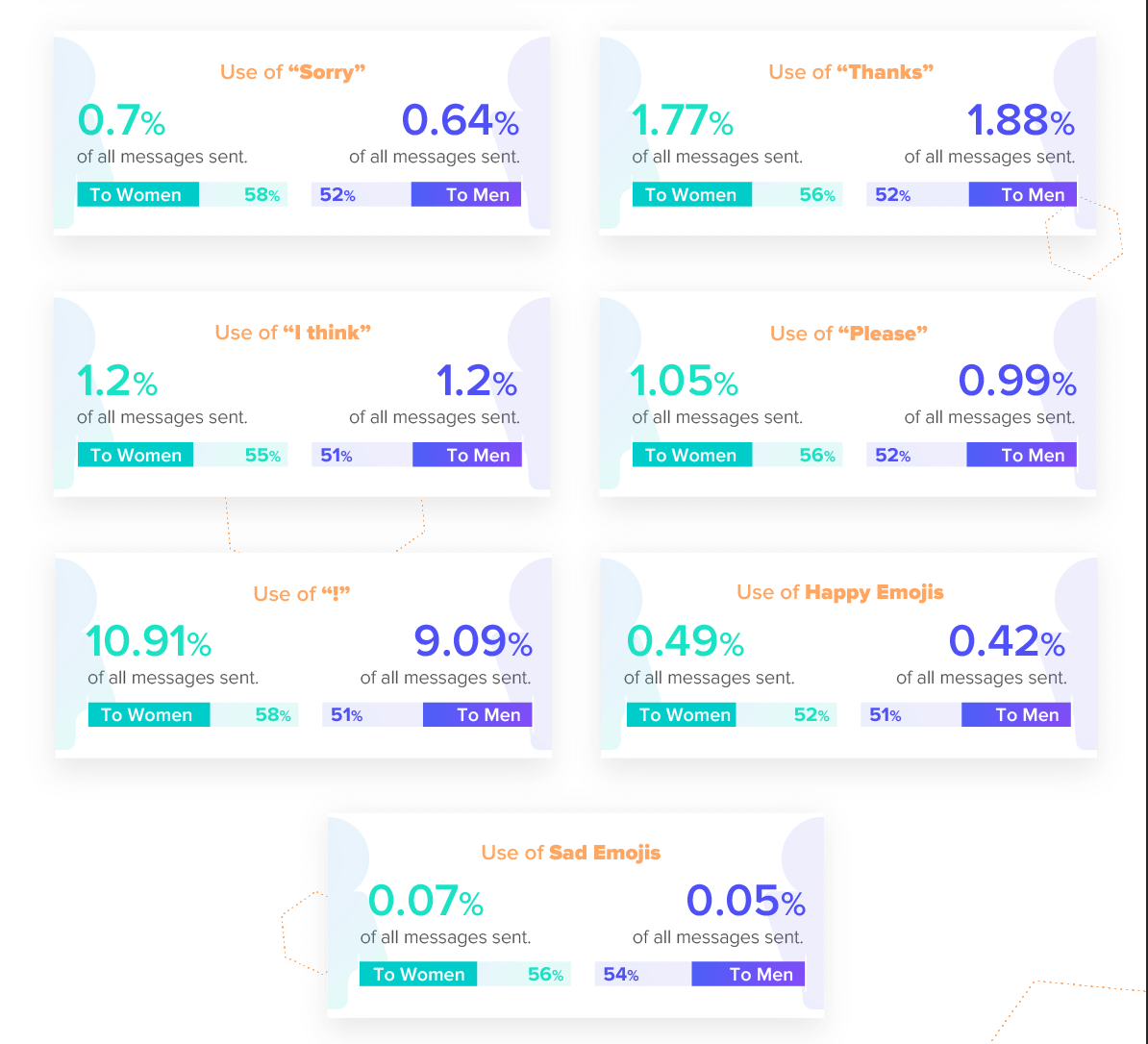Whether it’s Men Are from Mars or the fear of overusing emojis, the discussion around different communication styles and what’s most effective is one for the ages.
There’s been a recent backlash against words like “sorry” or “I think”, and women, in particular, are encouraged not to use them. There’s even a Gmail plugin, Just Not Sorry, that underlines “passive” words that may undermine a woman’s message. From countless articles to Sheryl Sandberg’s “Lean In,” women have been told they need to use more assertive language (or at least cut out “weak” language).
Using anonymized data from over 3,000 men and women in Hive’s productivity platform, we sought to answer the question— Do women use more passive language in the workplace than men?
The Results
We were shocked to find almost no differences between the use of these words by each gender.
Men do say “thanks” more often, but use “sorry”, “please”, and, “I think” almost equally. Women are more likely to use both emojis and exclamation points, but overall, there isn’t a huge difference.

Message length did not differ across each gender either — both men and women averaged about nine words per message sent.
Knowing that we communicate the same is an amazing sanity check for women, but it doesn’t change the fact that women still suffer from inequality in the workplace. There are gendered gaps in pay and title, and data from McKinsey shows that both the number and the percentage of women tapers off dramatically in leadership roles.
Women have been trained to feel ashamed for this behavior, when in fact, the data shows that we don’t actually need to change it. With language patterns so similar across genders, maybe we should be shifting our focus away from policing how women communicate in the workplace and start worrying more about how women’s words and contributions are perceived.
For more insights on productivity gaps, the role of communication styles, and how we approach working relationships, view the full data report at www.stateoftheworkplace.com


